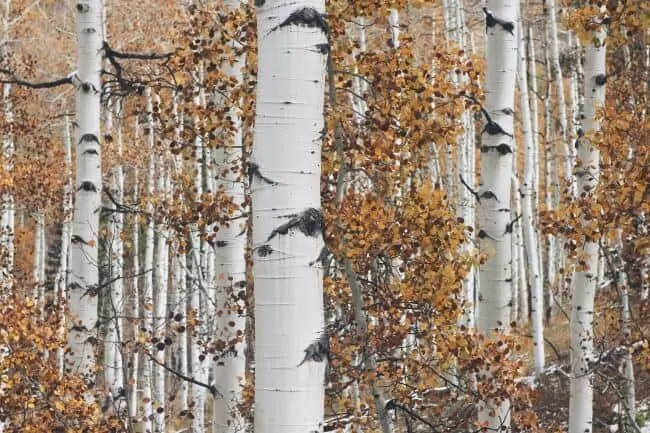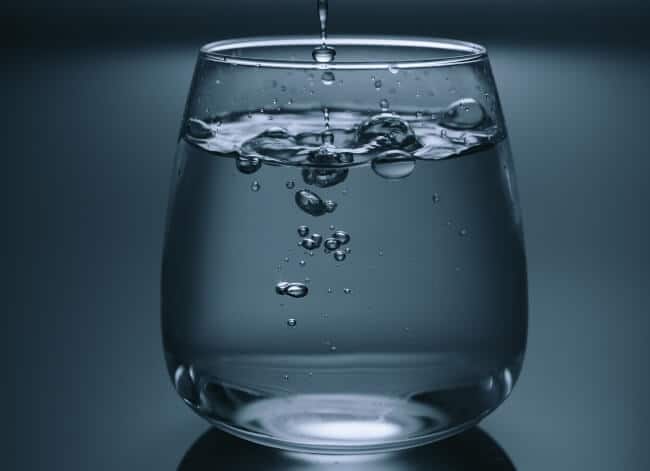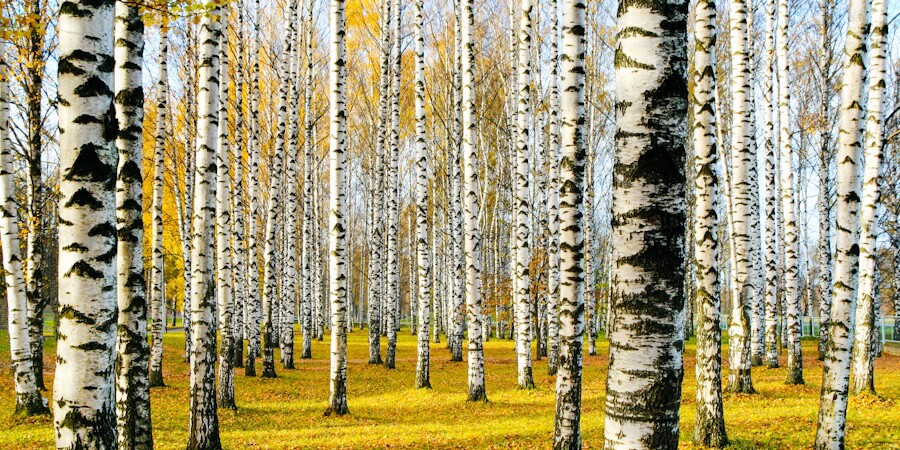Many people believe that birch sap provides several health benefits, from protecting against eye diseases to improving skin health. For this reason, it’s starting to become more trendy and available in the United States.
This article will provide an overview of birch water, including its potential health benefits, where to find it, and how to use it.
What Is Birch Sap?
Birch sap is a clear liquid that can be extracted or tapped from birch trees. It’s also known as birch tree water, birch juice, and birch syrup.
For hundreds of years, birch tree water has been consumed as a traditional beverage in parts of the Northern hemisphere, including Northern European countries as well as parts of Northern China and Japan (1).
Where to Find Birch Tree Sap?

Birch sap is provided by the many species of birch trees, including Betula alba (white birch), Betula pendula (silver birch), Betula papyrifera, Betula fontinalis, and Betula lenta.
Birch trees are widespread in areas of the Northern Hemisphere, in which temperate and subarctic climates allow them to thrive (1).
Due to its rising popularity, birch juice has become more widely available at natural food stores and supermarkets. It’s typically marketed as birch water to improve its appeal to consumers. Birch water can also be purchased online from some retailers, such as Amazon.
[aawp box=”B078WSNKPW” template=”horizontal”]
If you live in an area with birch trees, you can also make birch sap beverages on your own by extracting it directly from the tree.
Appearance and Flavor of Birch Juice

Fresh birch tree sap is described as water-like, with hints of sweet flavors. It has a clear and uncolored appearance, similar to that of regular water. After a few days, birch water ferments and starts to taste more acidic.
Birch tree water is thinner than maple syrup. Its texture is often compared to that of coconut water, as it is somewhat silky.
What is Birch Sap Used For?
Birch Water is Used in Cosmetics
Birch sap has been used cosmetically for centuries, mostly in the realm of skin health.
Some people use it as a moisturizer, and it has been said to help keep skin protected from the sun. There are also some reports of birch juice being used to treat specific skin conditions, such as acne and eczema (1).
Birch sap water’s potential to promote skin health is often attributed to its antioxidant content, which may help protect the skin against damage caused by inflammation (2).
[aawp box=”B06Y2JPR2Z” template=”horizontal”]
Birch juice has also been touted as a tool to strengthen hair growth and prevent baldness due to the amino acids that it provides.
There is not any scientific evidence behind cosmetic uses of birch sap water, but it’s worth a try if you want to add it to your beauty routine. You can use birch sap water on its own for skin and hair care, but it’s also added as an ingredient to several types of skincare products.
Uses of Birch Water in Food and Drinks
Birch sap is also used as an ingredient in many foods and drinks. The most common products made from birch juice are:
- birch beer
- candy
- vinegar
- mead
- wine
- birch syrup
- flavored birch water
Birch syrup is made of concentrated birch sap. It is a costly type of syrup made from paper birch in Alaska, Canada, and several Northern European countries like Latvia, Finland, Russia, Belarus.
What Are The Health Benefits of Birch Sap?

Due to the nutrition content of birch juice, it is believed to promote health in several ways.
Perhaps the most important health benefit of birch juice is its hydrating properties. It has been used historically as a diuretic, and claimed to have “cleansing” and “detoxifying” properties for this reason.
Listed below are a few other health benefits that birch sap has been claimed to have:
- Promotes good digestion and reduces bloating
- Helps strengthen the immune system
- Has anti-cancer properties
- Aids weight loss
- Supports heart health by keeping cholesterol levels under control
- Reduces joint pain
- Helps maintain oral health
- Promotes wound healing
- Optimizes kidney and liver health
- Prevents kidney stones
- Protects against gout
Despite its potential medicinal and nutritional uses, there is not any conclusive scientific evidence behind the use of birch juice for these health ailments. More human studies are needed to confirm the potential health benefits of consuming birch tree water.
With that being said, some animal and lab studies have shown birch tree water to have anti-inflammatory and antibacterial properties, likely due to its content of antioxidants and health-promoting minerals (3, 4).
Although birch tree water is unlikely to solve all of your health problems, it is generally safe to consume. Including it along with an otherwise healthy diet and lifestyle is certainly worth a try if you want to add it to your regimen.
Nutrients in Birch Tree Water
The nutrition profile of birch tree sap varies depending on the species of birch tree, in addition to environmental and anthropogenic factors. Generally, all variations of birch tree water contain a combination of several nutrients, including a small amount of sugar and amino acids.
Birch tree sap is known to consist of up to a dozen minerals, which provide many important health benefits. Calcium and potassium are the minerals typically found in the highest amounts in birch sap.
One liter of birch sap is predicted to contain at least 150 mg of calcium, potassium, and magnesium. In one study, a liter of silver birch tree sap provided up to 40% of daily requirements for copper, 17% for zinc, 2% for calcium, 4% for magnesium, and 0.04% for sodium.
Another study found birch tree sap concentrations of manganese, phosphorus, and zinc to exceed 1 mg per liter.
Despite its high mineral content, birch water is not rich in vitamins, although some birch tree species contain detectable amounts of folic acid in their birch water.
Birch juice is low in calories and high in antioxidants. Birch trees located in areas with environmental stresses and grown in soil with high heavy metal concentrations may have higher antioxidant activity in their birch water. (2)
Finally, Should You Drink Birch Tree Sap?
Overall, birch tree sap is a healthy beverage. It provides minerals and antioxidants, and has a refreshing sweet flavor.
However, birch water isn’t a miracle beverage. There is not any conclusive scientific evidence behind its health claims and use in folk medicine. It can contribute to your hydration needs due to its water content, but hasn’t been proven to prevent or cure any health ailments.
With that being said, there are many anecdotal claims that consuming birch water provides many health benefits, from improving digestion to reducing pain. Birch water is generally safe for most people to drink, so adding it to an otherwise healthy diet and lifestyle is certainly worth a try.
Have you tried birch sap? Does it make you feel better? Let us know in the comments!
Frequently Asked Questions
How to Tap a Birch Tree for Water?
Although birch tree water is becoming more widely available in the marketplace, it can be expensive. If you live in an area with birch trees, you can learn how to tap them for water which is quite easy to do and completely free.
To collect birch water, you’ll need to drill a hole into the trunk of a birch tree at an upward angle and lead the sap into a container with a tube or other type of conduit.
Birch water has to be tapped at the right time of year before it becomes unpalatable. Springtime, when the temperatures are above freezing and before any green leaves have appeared, is the best time to collect birch juice from birch trees.
You’ll also want to make sure the birch tree you collect birch water from is healthy and at least 10 inches round in diameter.
Once you’ve finished collecting the birch water, it can be consumed immediately. You can store it in glass bottles or another type of container, and should keep it cold in the refrigerator. Birch water ferments quickly, so you should drink it within a few days of tapping if you want to enjoy it fresh.
How to Consume Birch Tree Sap?
The most common way to consume birch tree sap is by drinking it plain. However, there are many other ways that you can enjoy this nutritious liquid.
For example, you can pour it your quiet blender to add it to smoothies for a nutrition and flavor boost. Some people use it in place of regular water to brew herbal teas. You can also add your own healthy spices and seasonings, such as ginger and turmeric, to birch water to enhance the flavor.
Birch tree sap can also be used to make syrup, vinegar, and alcoholic beverages such as wine and beer. Additionally, the clear liquid is sometimes used as an ingredient to make certain types of candy.
Is Drinking Birch Sap Safe?
There have not been any reported negative effects from consuming birch tree sap. However, those with allergies to birch should avoid drinking it.
Drinking excessive amounts of birch juice should be avoided. Birch trees in some areas may accumulate heavy metals, which can cause adverse health effects when consumed in high amounts. With that being said, birch tree water is resistant to toxic minerals, so it’s unlikely to contain unsafe levels of heavy metals. (2)
Additionally, due to its perishability, birch tree water should be consumed within 5-7 days of tapping. Consuming birch water after it has fermented can be unsafe for some people, especially for those with compromised immune systems.

